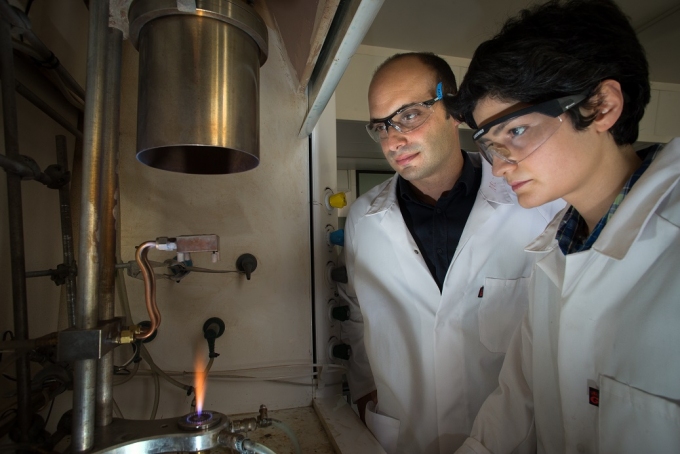Smart phones are getting smarter by the minute. They already help us plan transport routes, check the weather and take pictures. What if they could also diagnose diabetes or lung cancer?
Dr Antonio Tricoli and his team at the ANU College of Engineering and Computer Science are developing a technology to detect diseases by measuring markers in your breath, and it’s small enough to fit in a mobile phone.
The implication for cheap, mobile, non-invasive diagnostics is potentially revolutionary.
“If you are able to detect lung cancer at a very early stage, the chances of recovering are much higher,” Tricoli says.
“This solid-state technology is small enough to fit in a phone so it could be for personal use, or a bigger device could be used in pharmacies.”
Working at the interface of biology and engineering, Tricoli and his team are using the National Computational Infrastructure’s supercomputer to design a mobile sensor made of billions of interconnected nanoparticles.
“Your breath actually contains more than 10,000 compounds, which can tell us about what you’ve been eating, how much, and whether you might have an undiagnosed medical condition,” Tricoli says.
“For example, we know that acetone in your breath can mean diabetes. And the difference between healthy and diabetic patents is only about one particle per million.”
The question is: how do you make something that is sufficiently sensitive to detect this tiny concentration, but also selective enough that we can exclude the 9,999 other compounds you breathe out?”
The answer involves extremely sensitive ceramic nanoparticles, made up of as few as 10 atoms, forged at 2,400 degrees Celsius.

